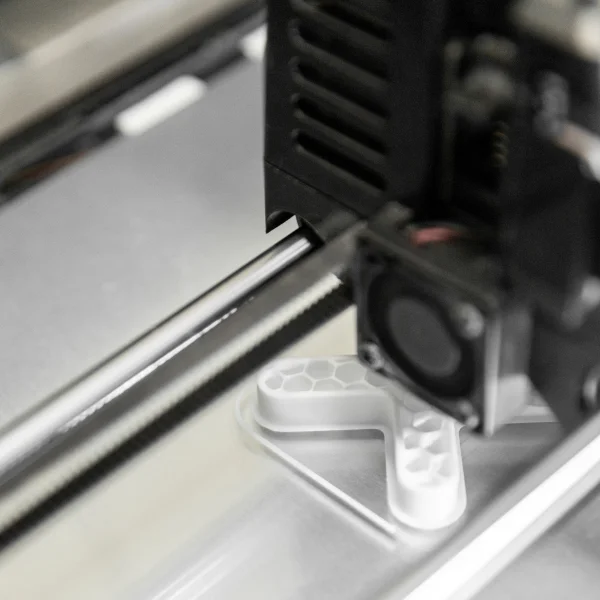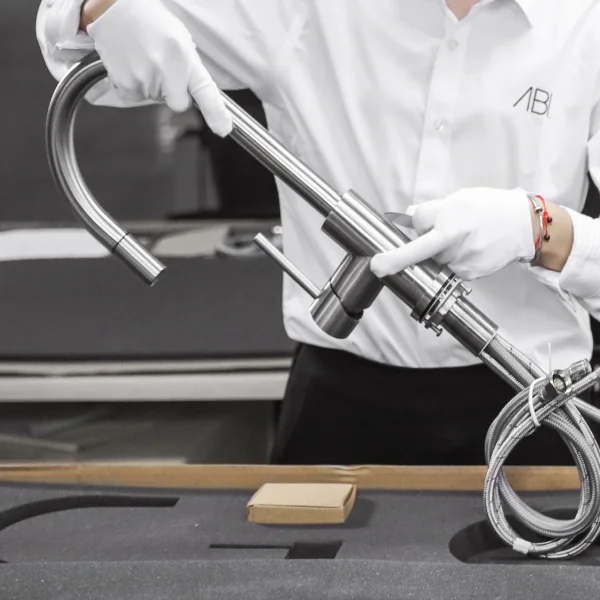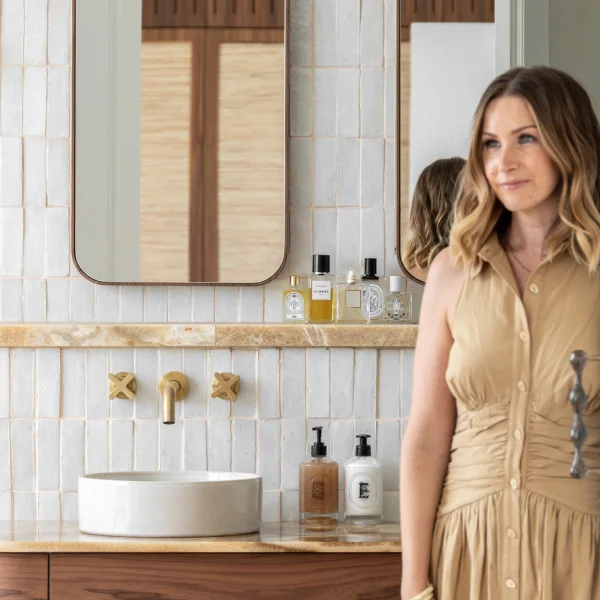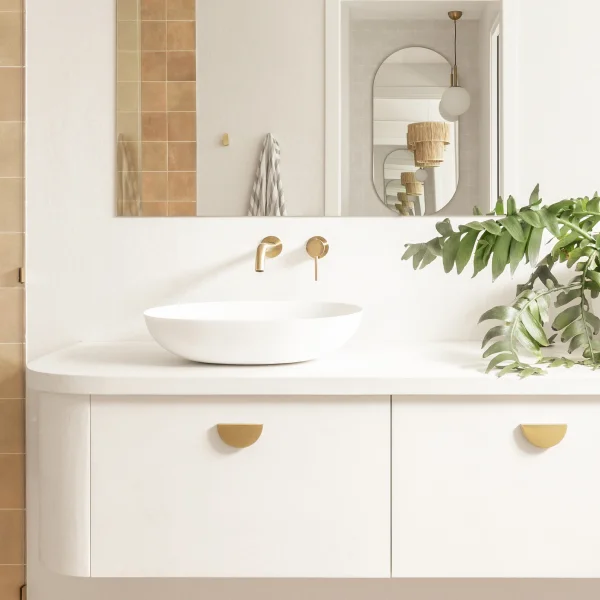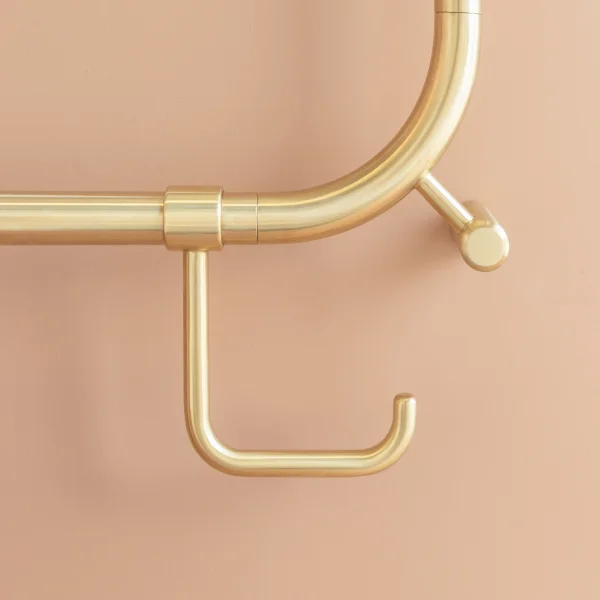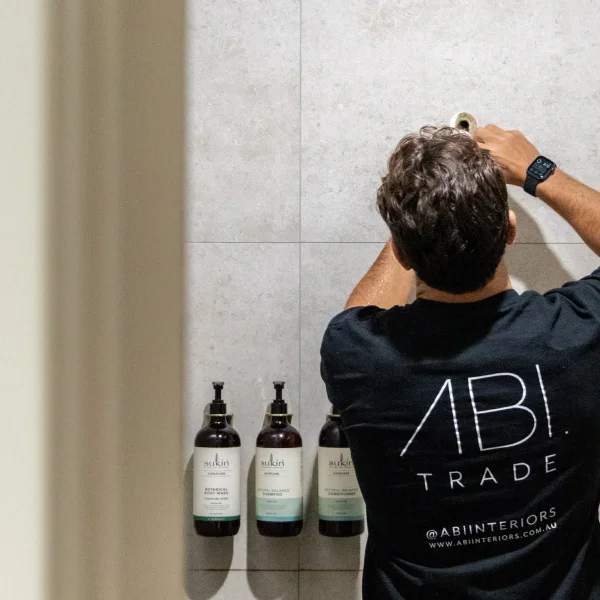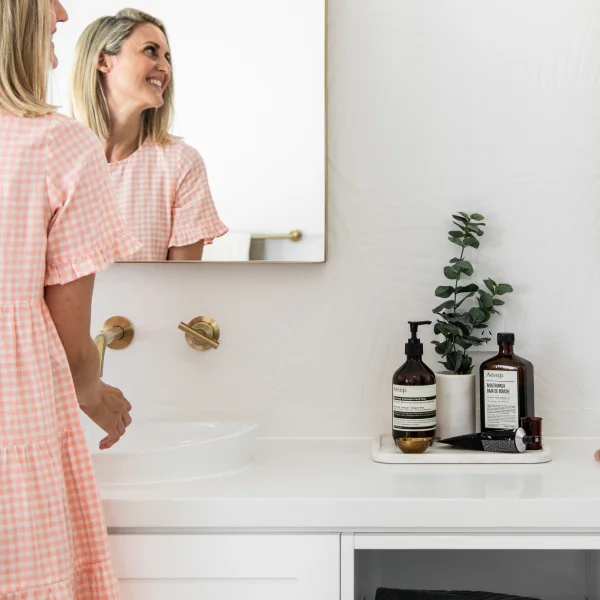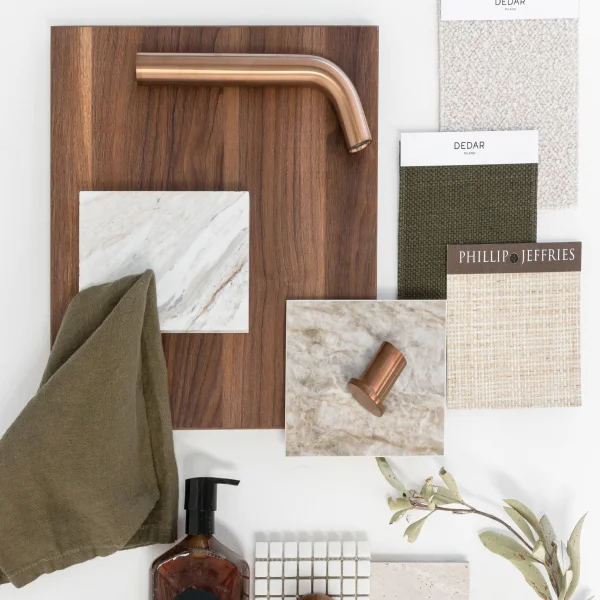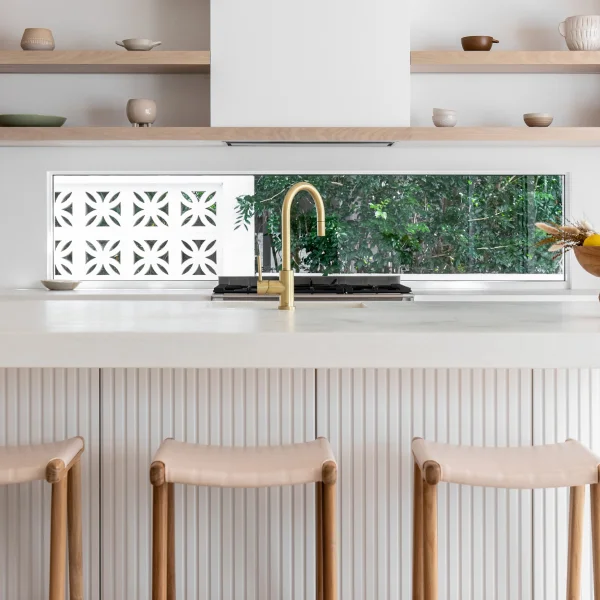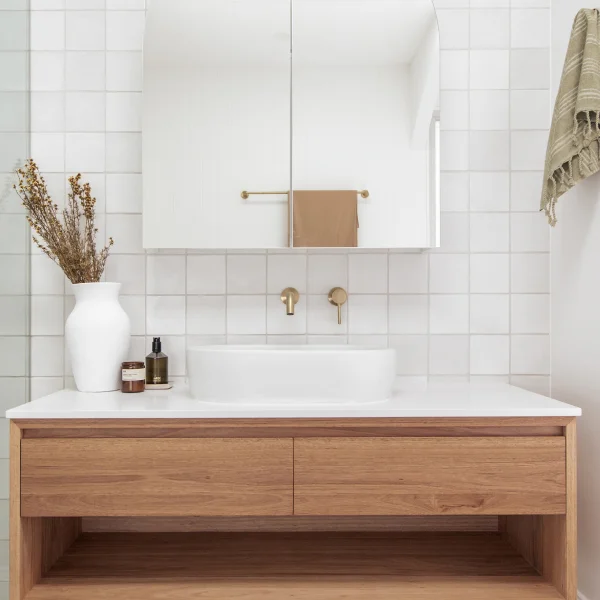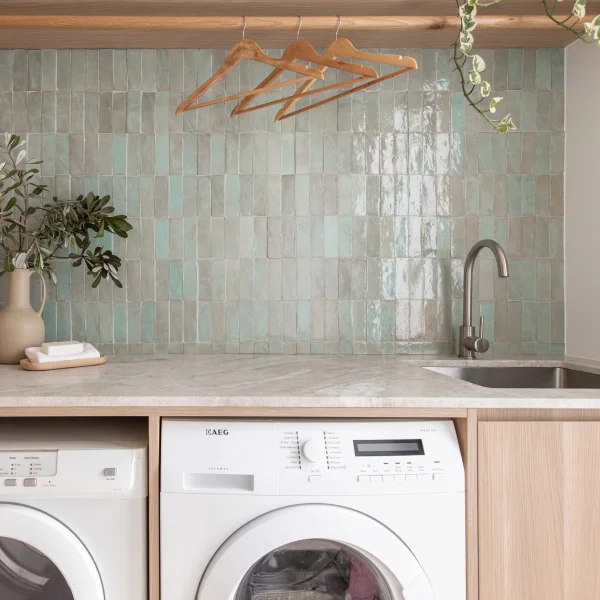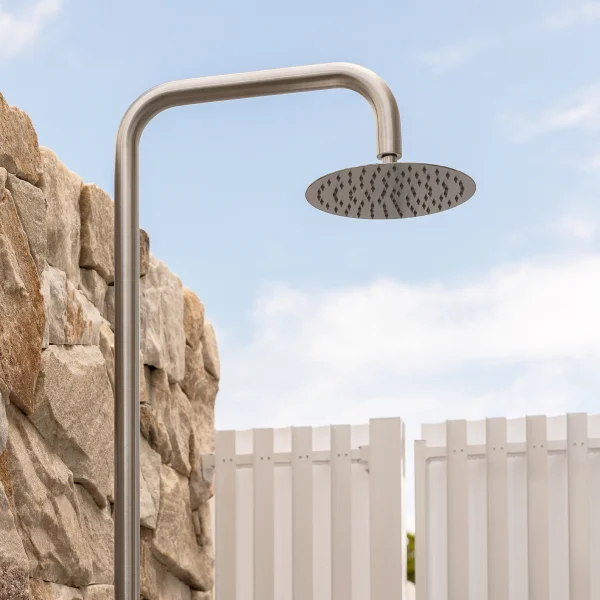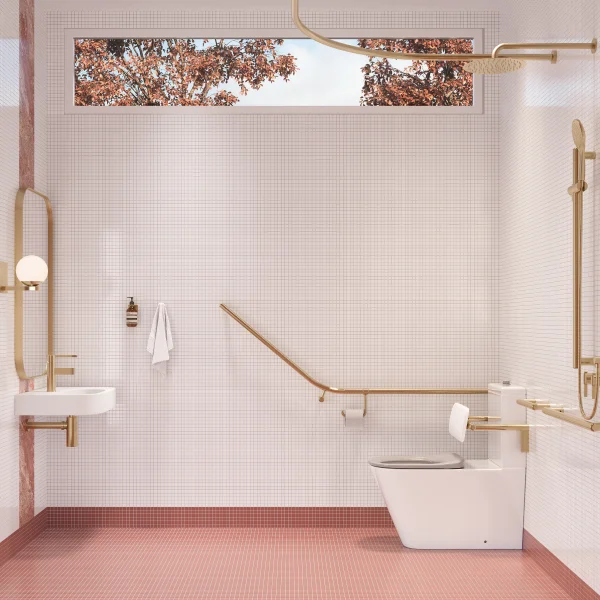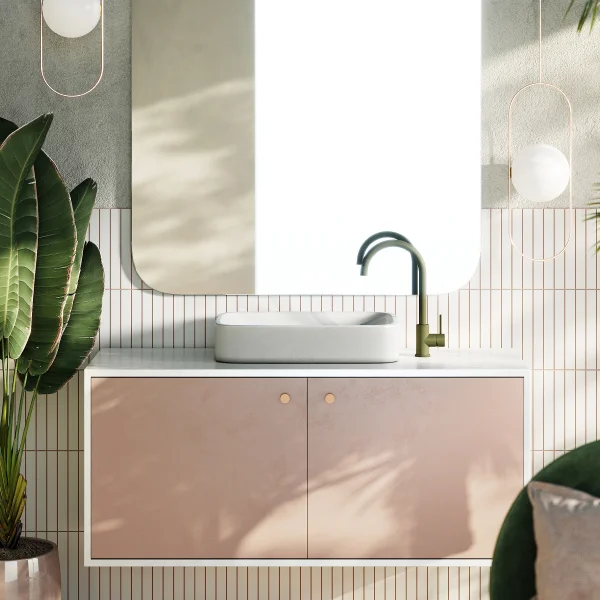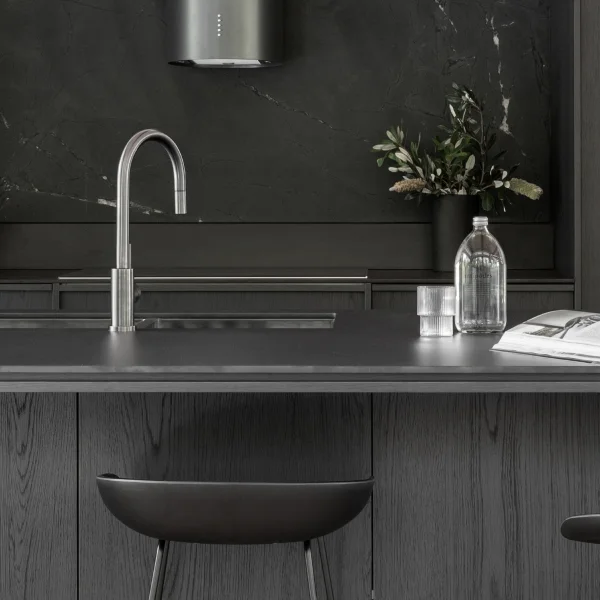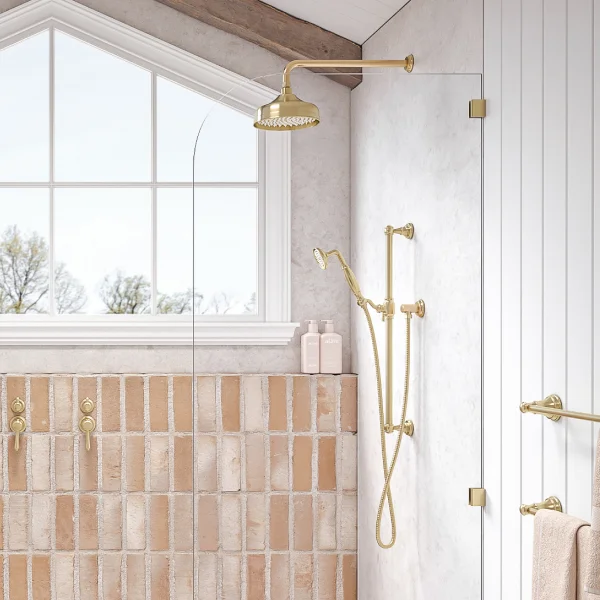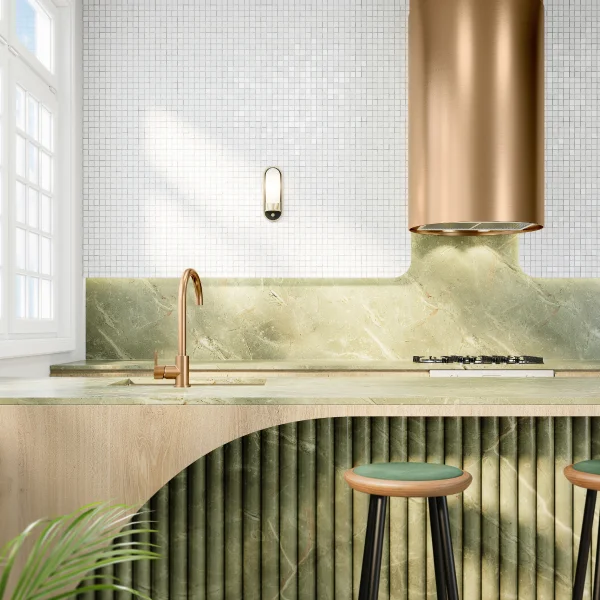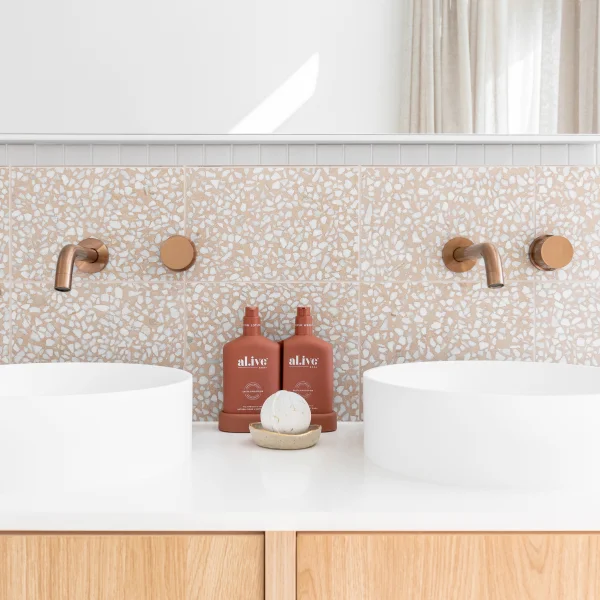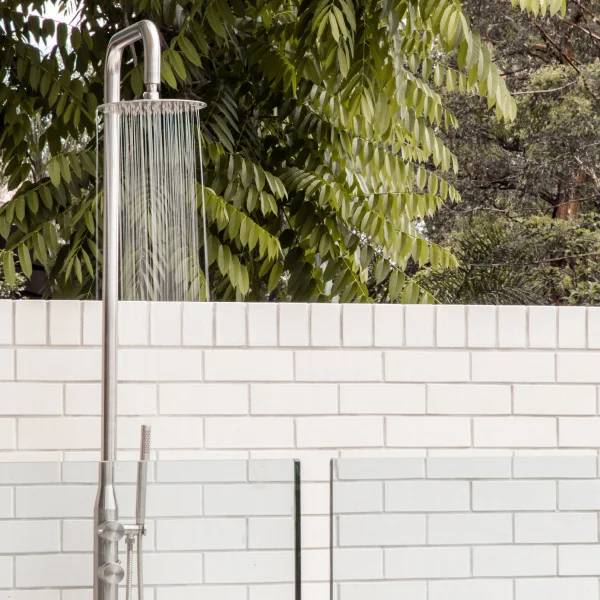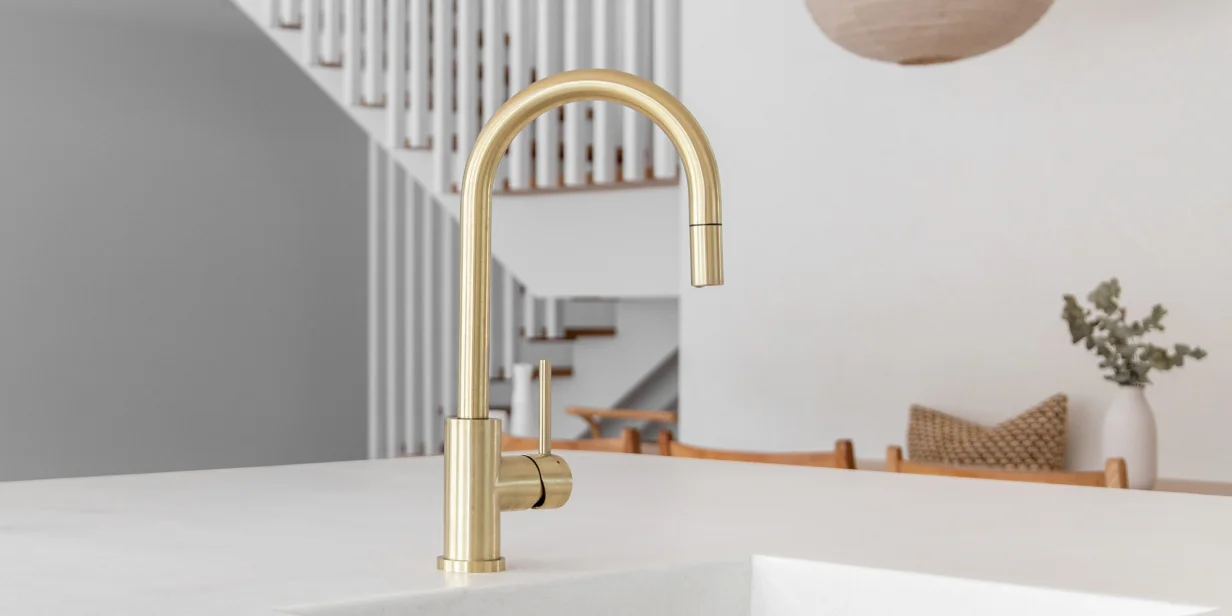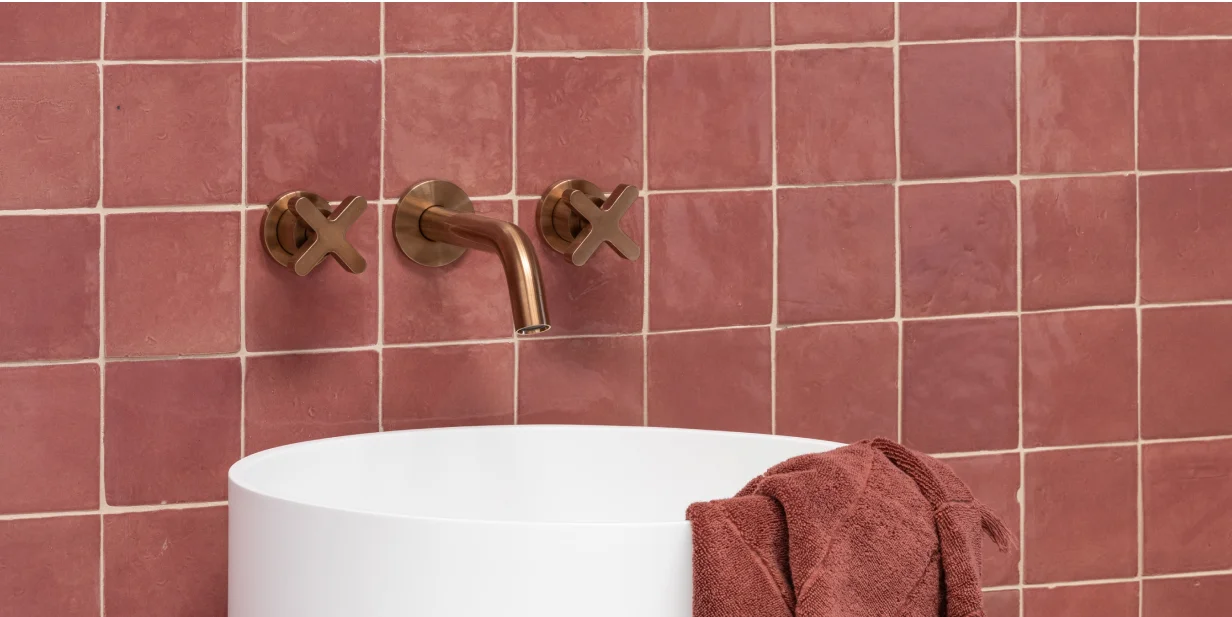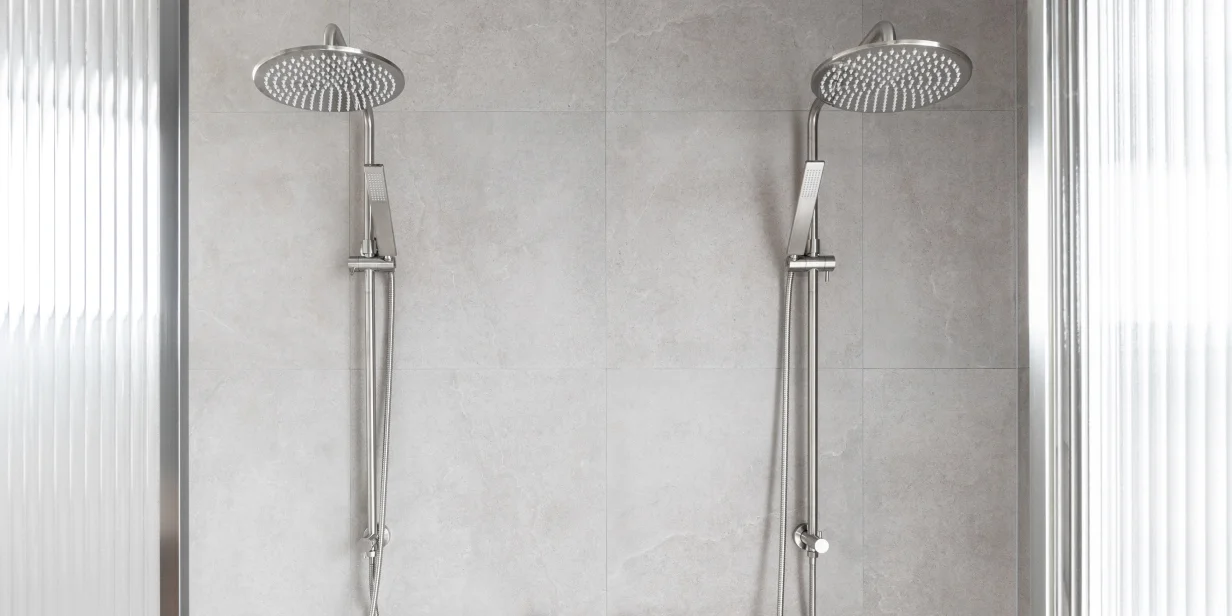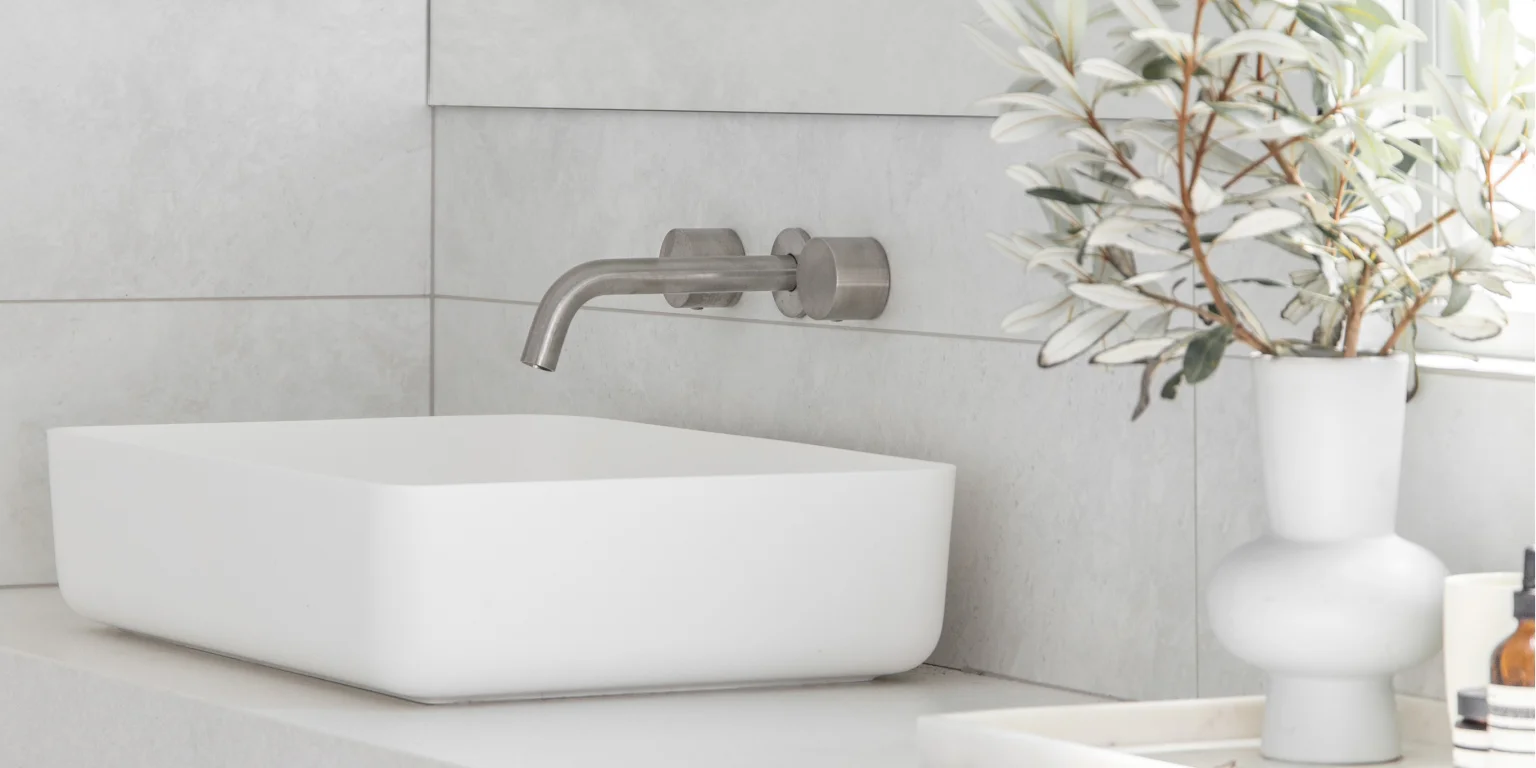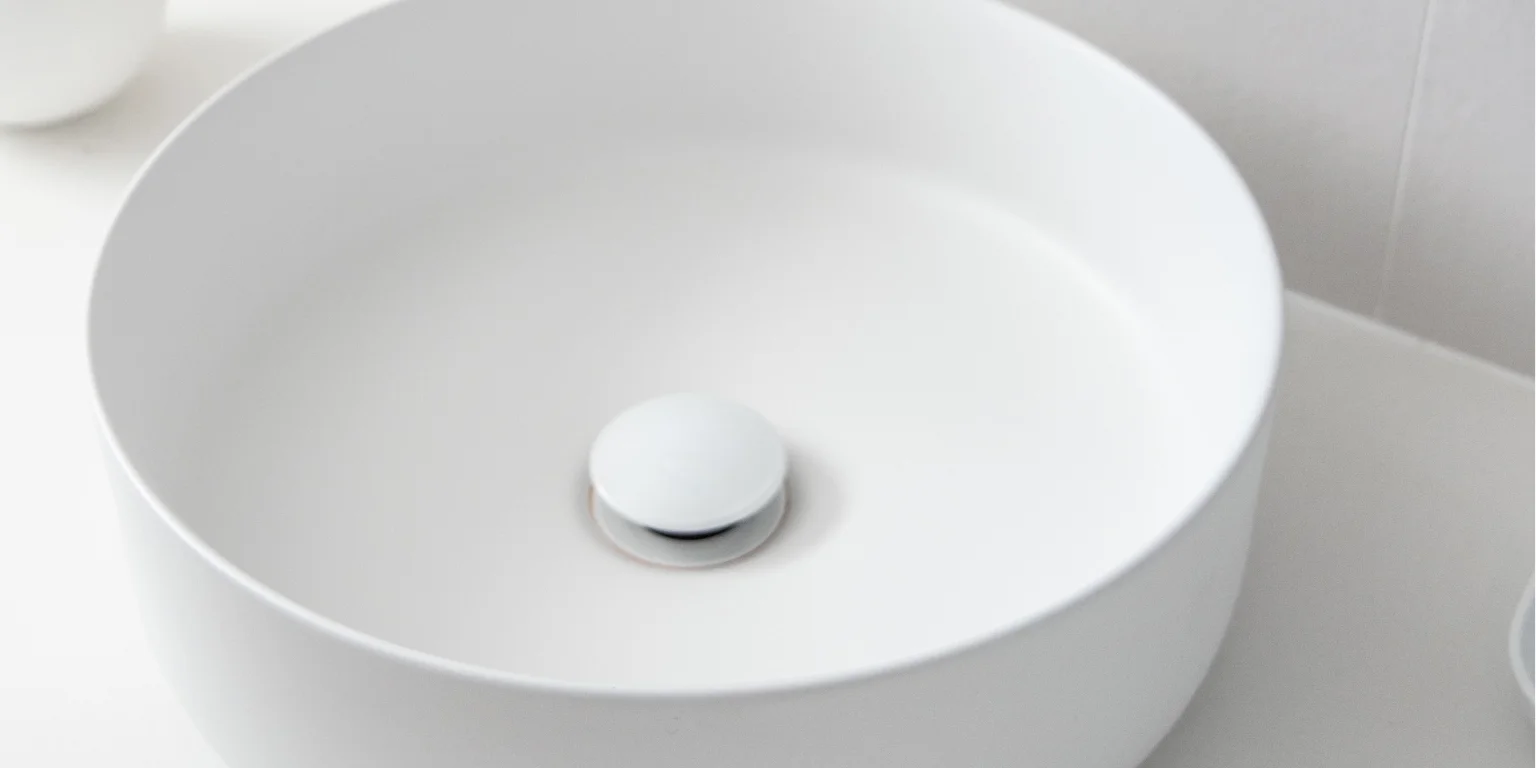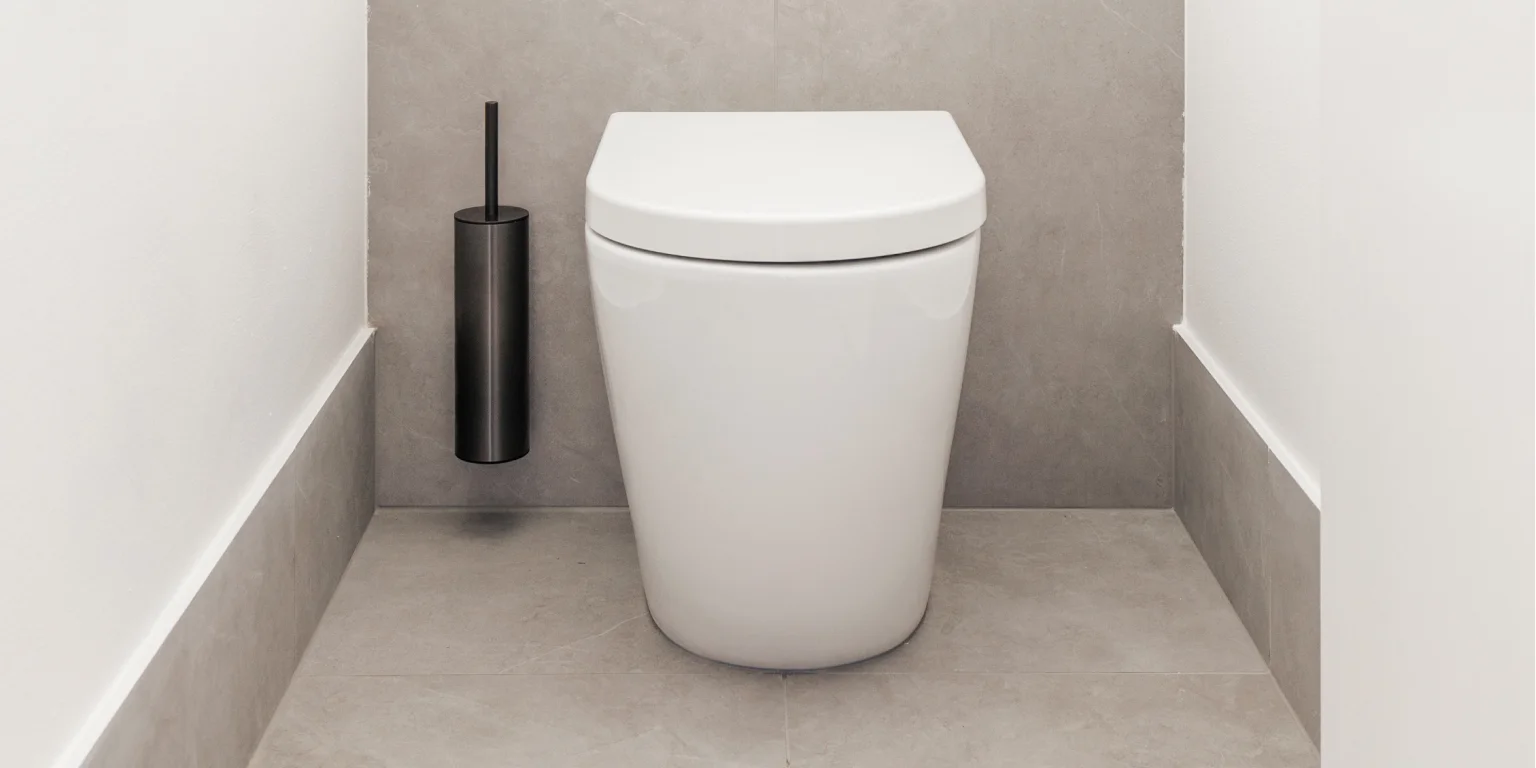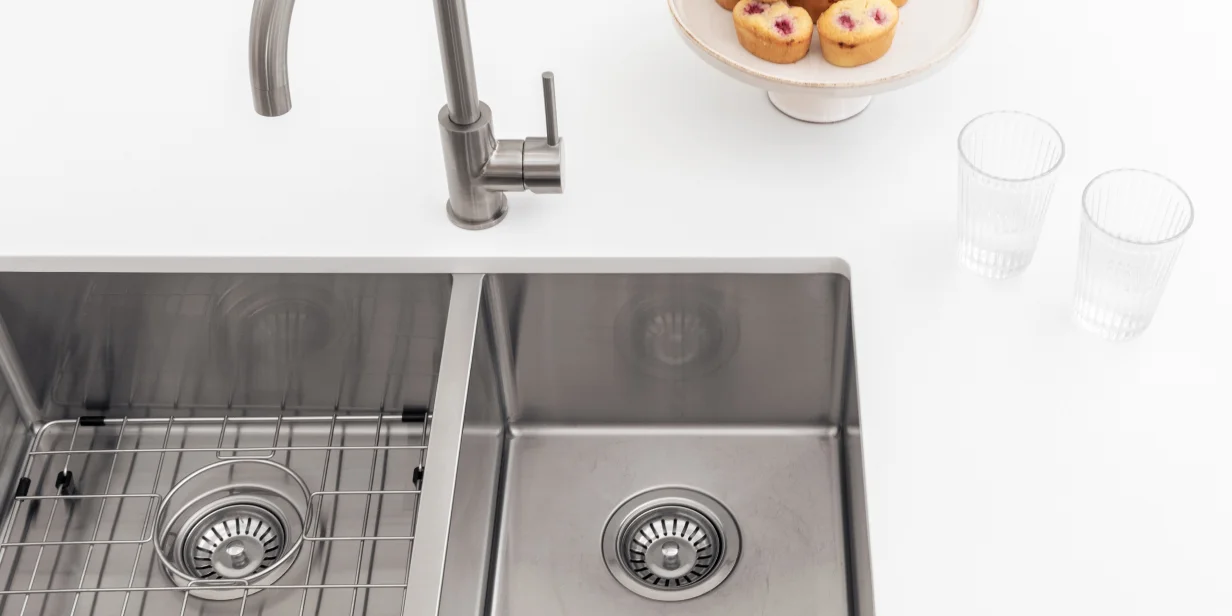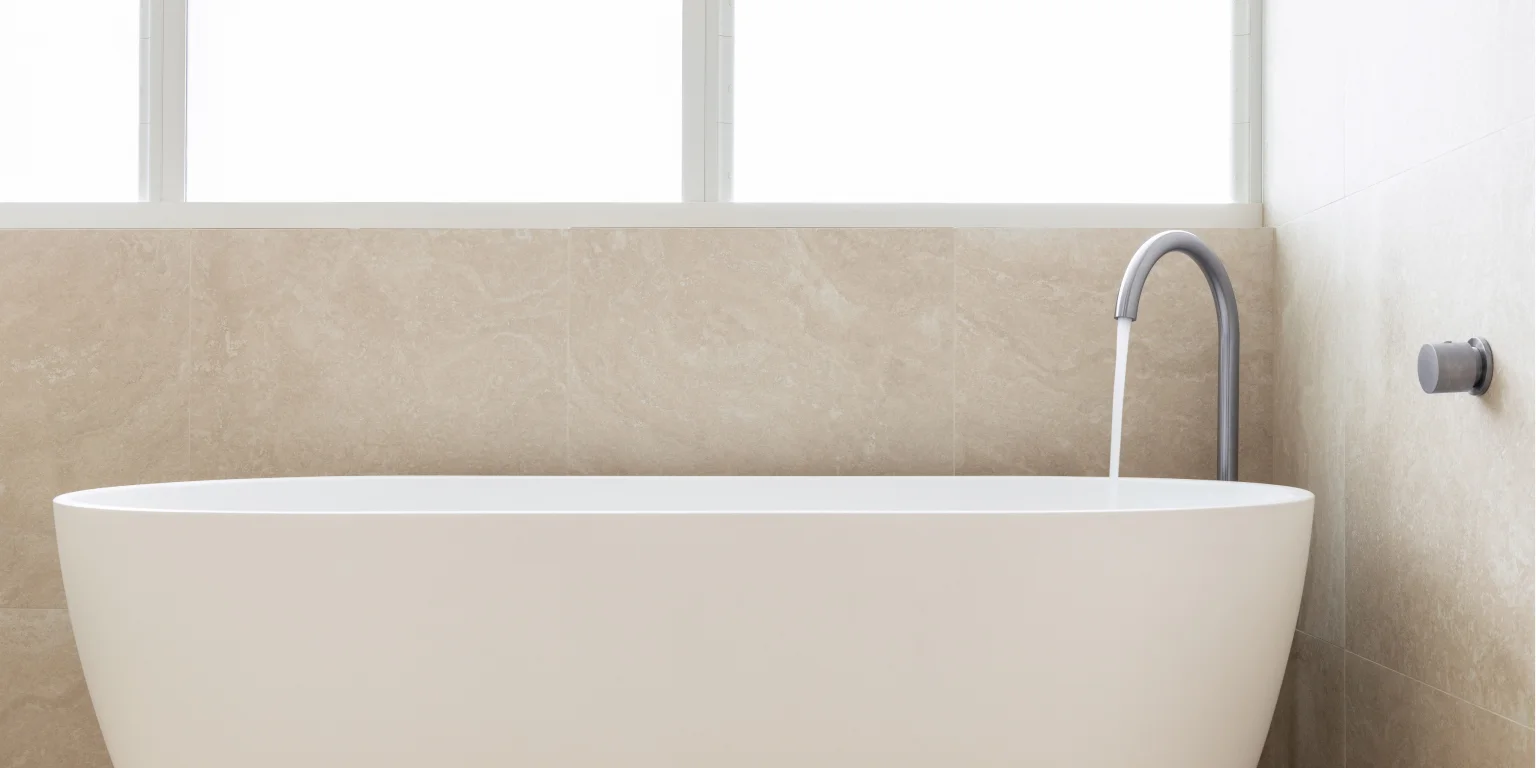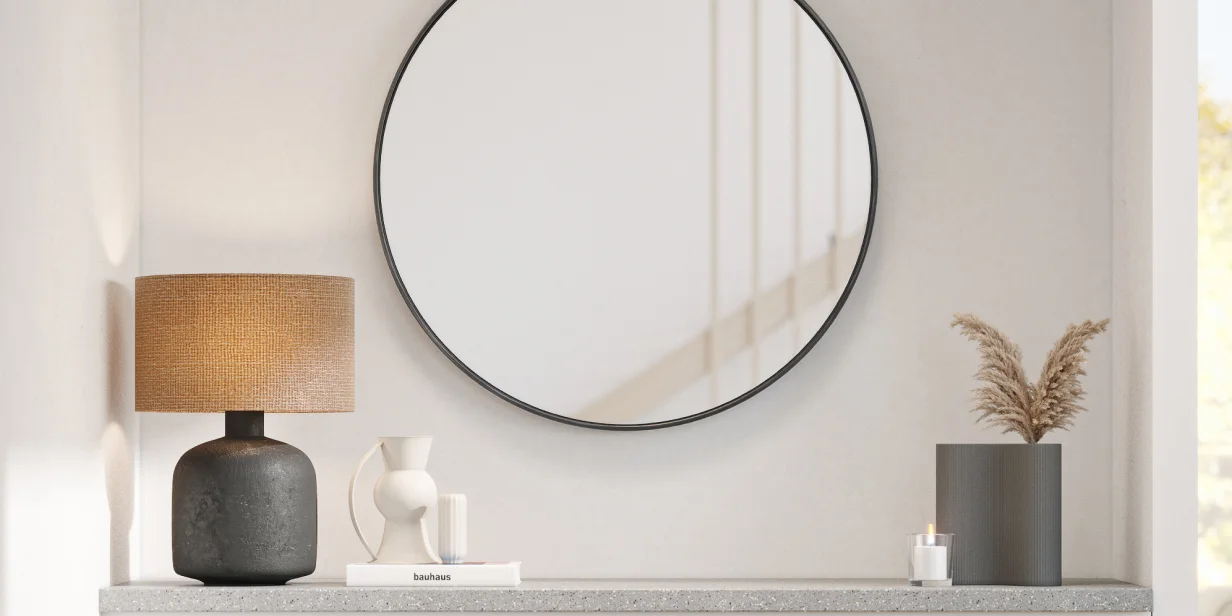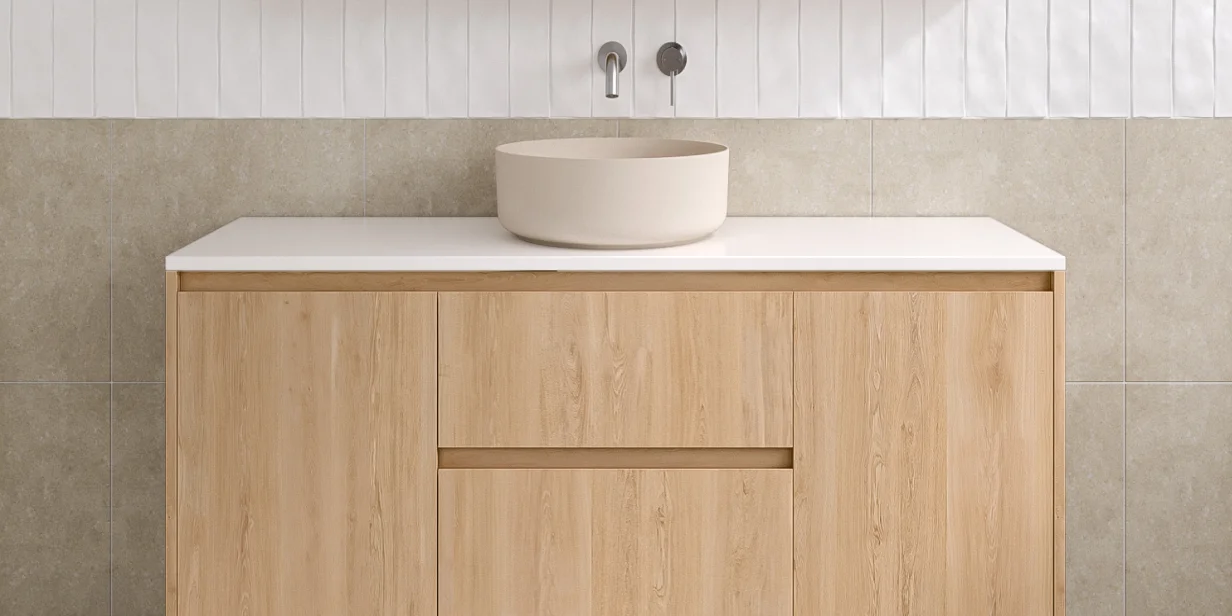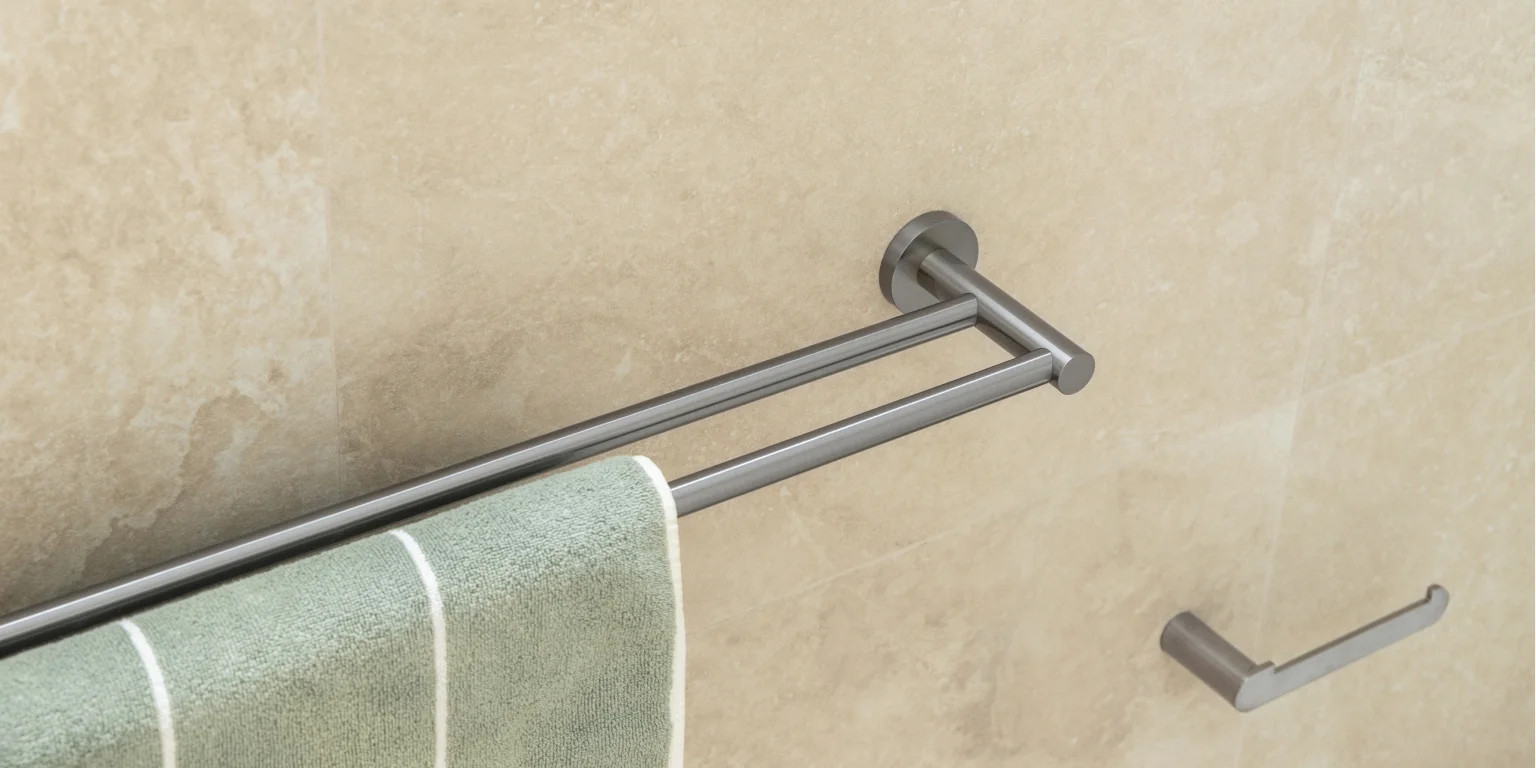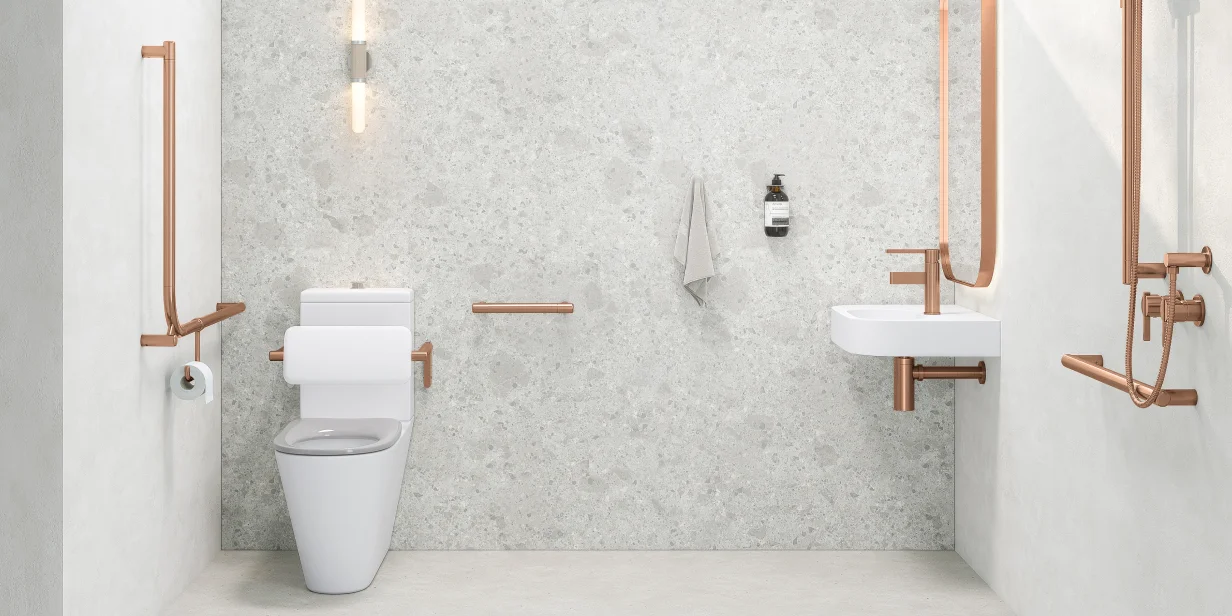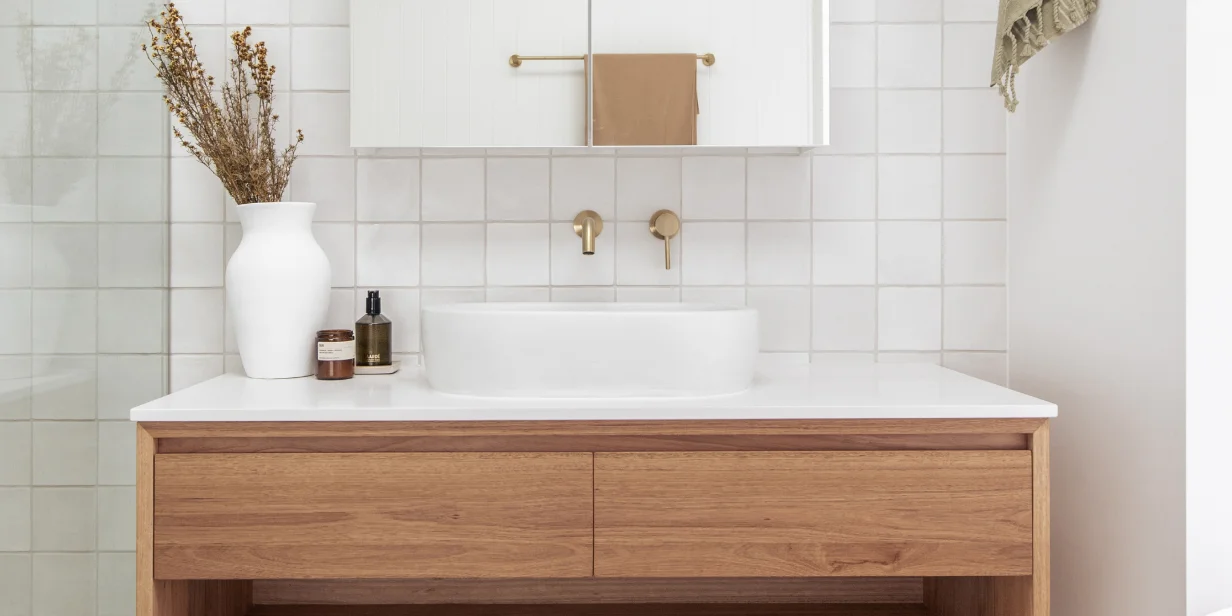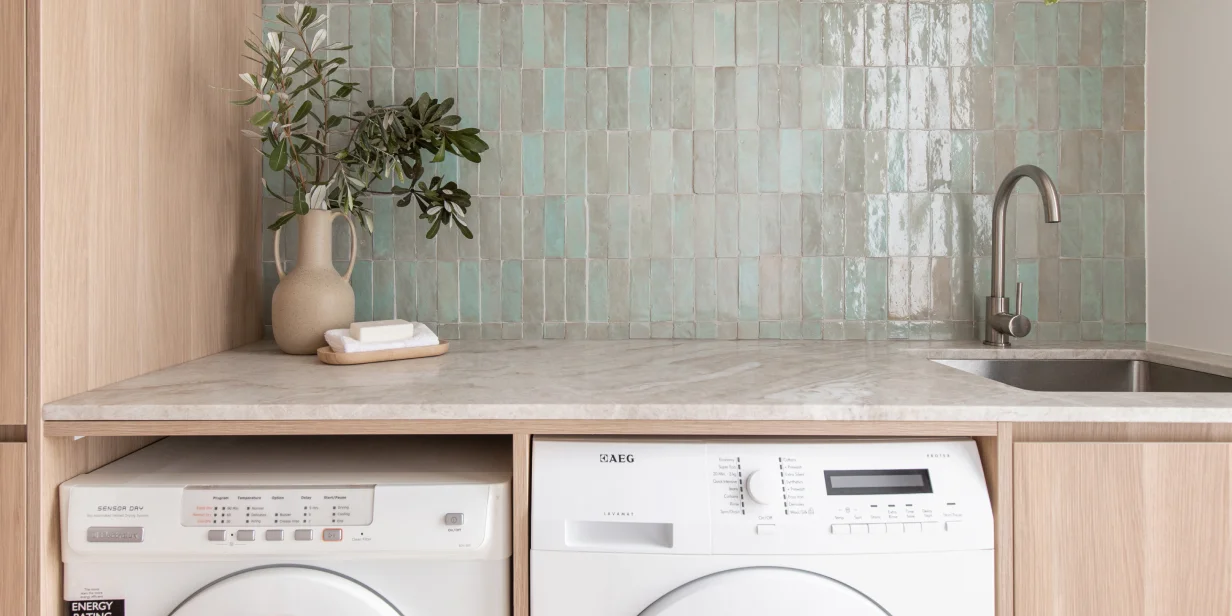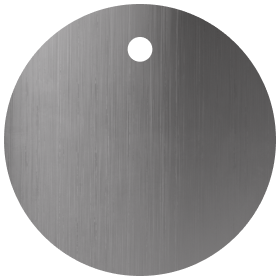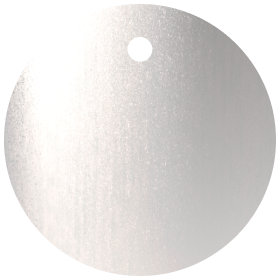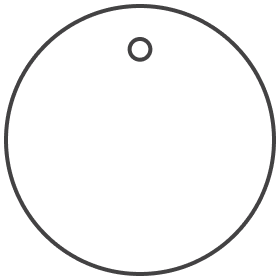The Rise of Clean Beauty with Mukti, Founder of Mukti Organics
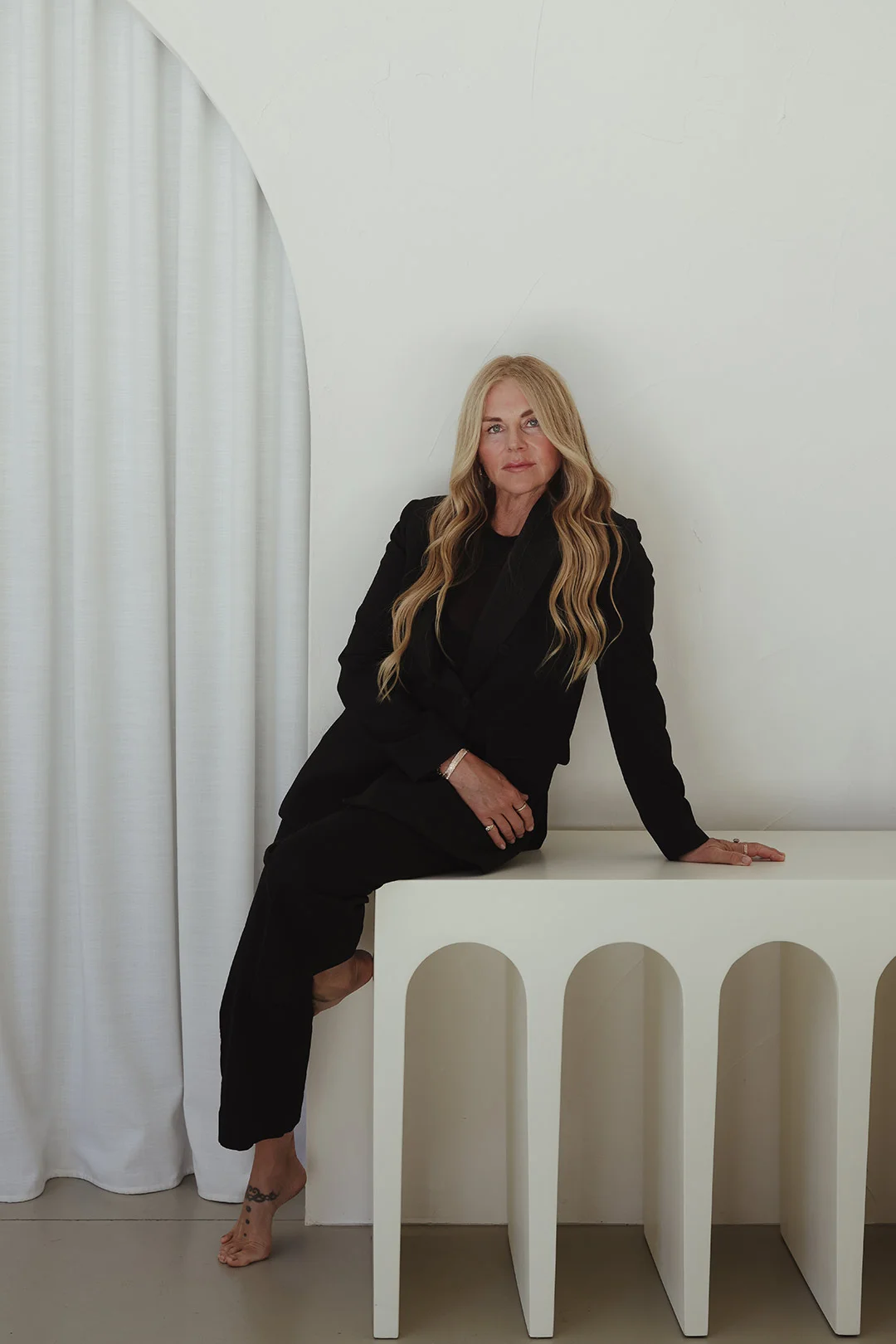
As creators of premium kitchen and bathroom fixtures, ABI Interiors is dedicated to enriching daily life through thoughtful design and quality craftsmanship. Today, we shine a light on the clean beauty industry by connecting with Mukti, the visionary founder of Mukti Organics. This Australian brand, like us, shares a passion for sustainability, exceptional quality, and design that prioritises the wellbeing of people and the planet.
Mukti, a trailblazer in natural beauty and a pioneer of green cosmetic chemistry, founded her eponymous skincare brand over two decades ago. Rooted in the principles of sustainability, organic formulations, and cruelty-free practices, the business began in the Sunshine Coast hinterland and has since grown into an internationally recognised brand.
At its inception, Mukti Organics was among the first of its kind. Now, it's part of a burgeoning clean beauty industry expected to reach US$39 billion by 2033, fuelled by growing consumer awareness and demand for products that are safe for both people and the planet. We spoke with Mukti to explore her business ethos, clean living tips, and how she stays competitive and leads with transparency in this rapidly growing market.
Q. What inspired you to start Mukti Organics?
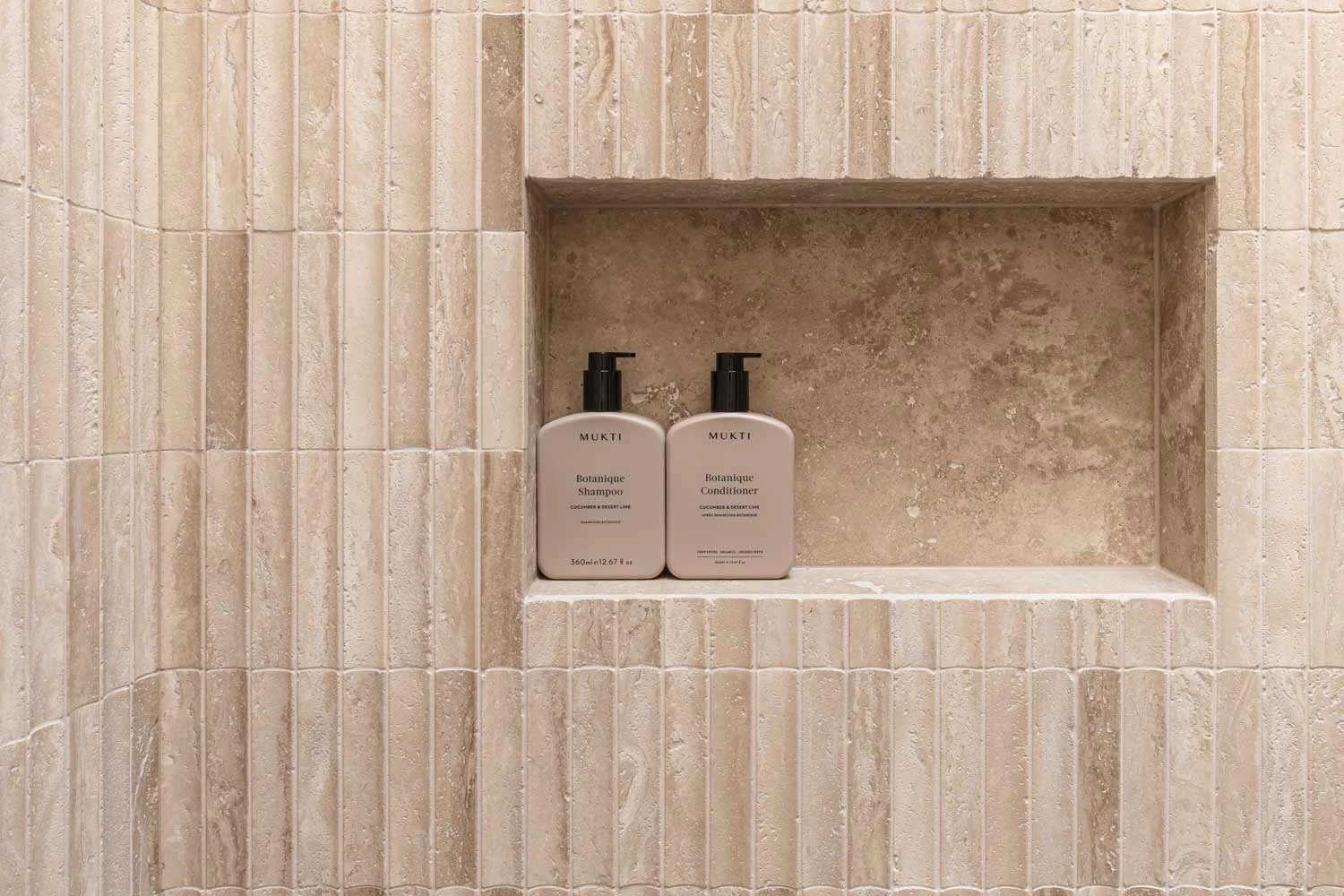
I founded Mukti Organics over 24 years ago when I was working as a skin therapist seeking natural, organic alternatives for my clients. At a time when awareness of synthetic ingredient risks was emerging, and the clean beauty space was still in its infancy, I couldn’t find the products I needed — so I decided to create my own range.
Q. What challenges have you faced as an entrepreneur in the clean beauty industry, and how have you overcome them?
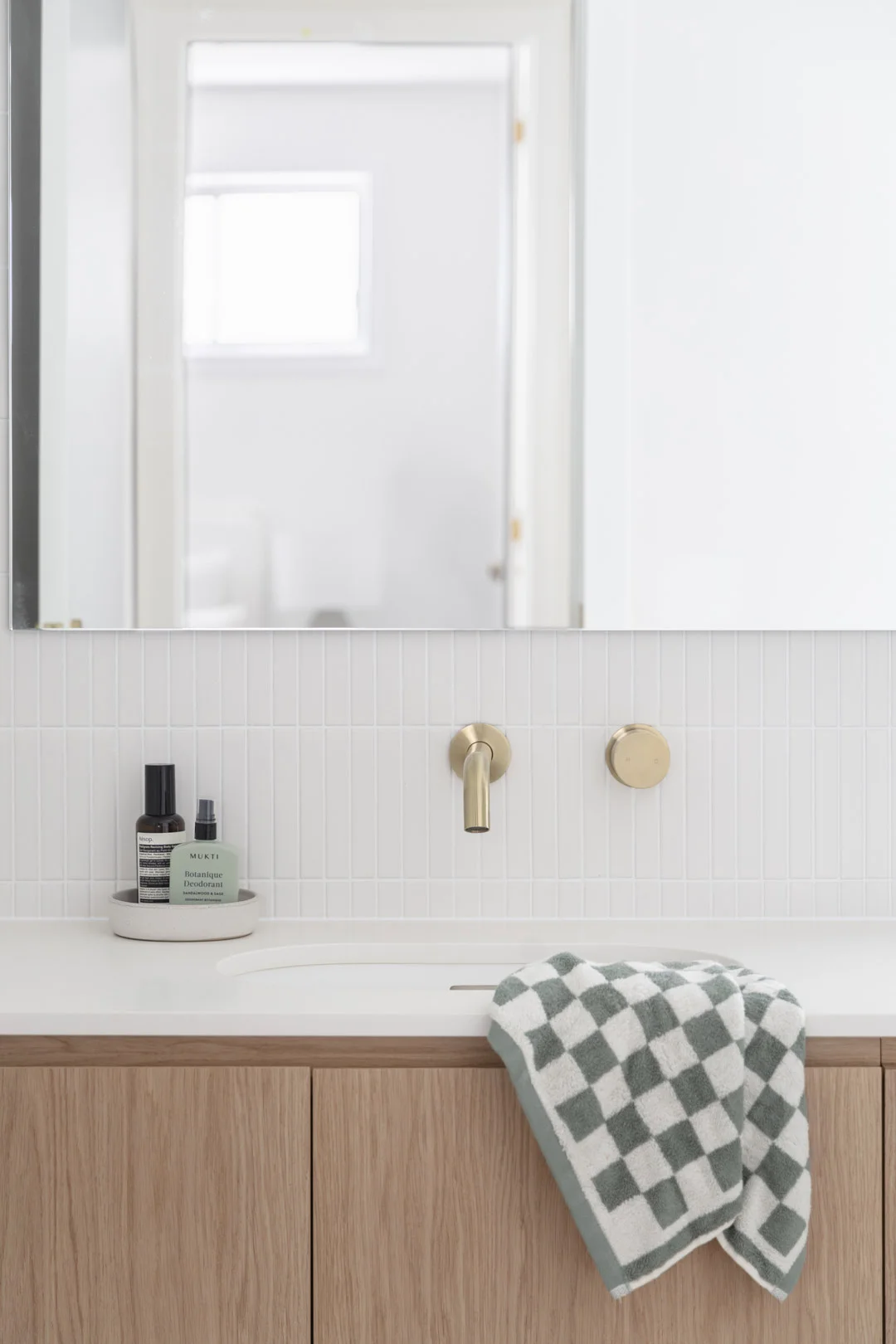
For almost a quarter of a century, the journey of Mukti Organics has been an incredible ride, and it hasn’t been without its fair share of trials and tribulations. Looking back, these challenges only fuelled my determination to create a skincare brand that echoed my values — ethical, sustainable, and made with quality, organic ingredients.
Raw materials and suppliers were extremely limited, so there was a steep learning curve. I felt like I was on my own, navigating the intricate world of natural, clean formulations, learning from every single mistake. Our first Mukti Organics product was a lip balm, and the original iteration was a complete disaster.
Armed with conviction and tenacity, I perfected the recipe and kept creating more products. I relentlessly researched ingredients and realised I’d need to broaden my expertise and skill set, so I decided to study Cosmetic Chemistry.
Q. How has your vision for Mukti Organics evolved over the years?
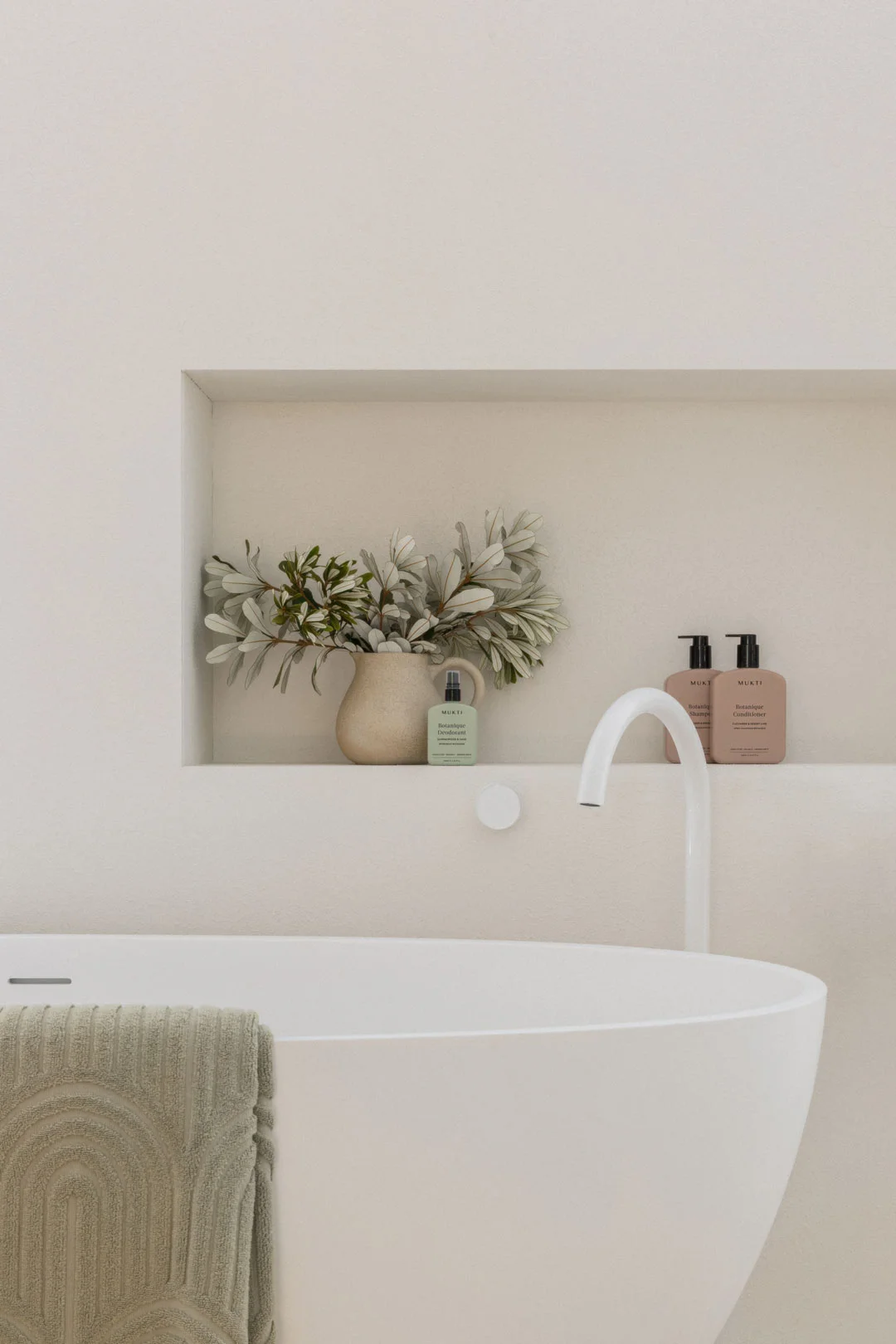
My vision for Mukti Organics has remained clear over the years: to combine the power of nature with science. When I started, natural formulations were less advanced, and I often heard “that doesn’t exist” or “we can’t do that.”
Instead of accepting the status quo, I pushed forward, determined to create potent, science-backed products that are natural, effective, and kind to both the skin and the environment. That vision continues to guide us today.
Q. What does success mean to you?
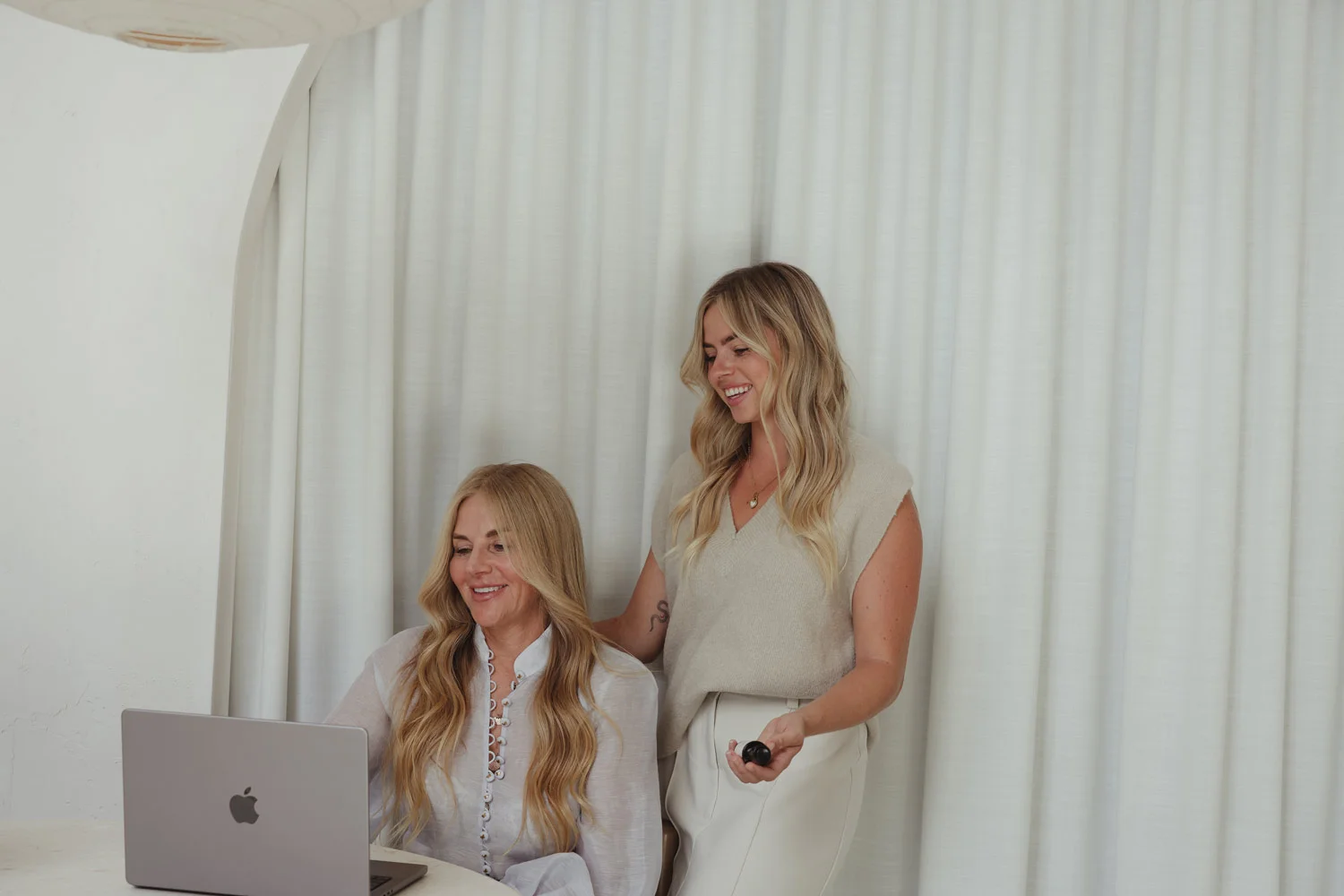
To me, success is all about balance. As a business owner and mother, it can often feel like you’re being pulled in a million different directions, and finding that middle ground — while also prioritising your own wellbeing — isn’t always easy.
We have many varied roles, and the demands can be relentless, but when I feel a sense of personal and professional balance, that’s what I call success. Success looks different for everyone, but for me, if my family is happy and healthy and my business is thriving, then I know I’m on the right track.
Q. What makes clean beauty so important in today’s world, and how do Mukti Organics products align with this philosophy?
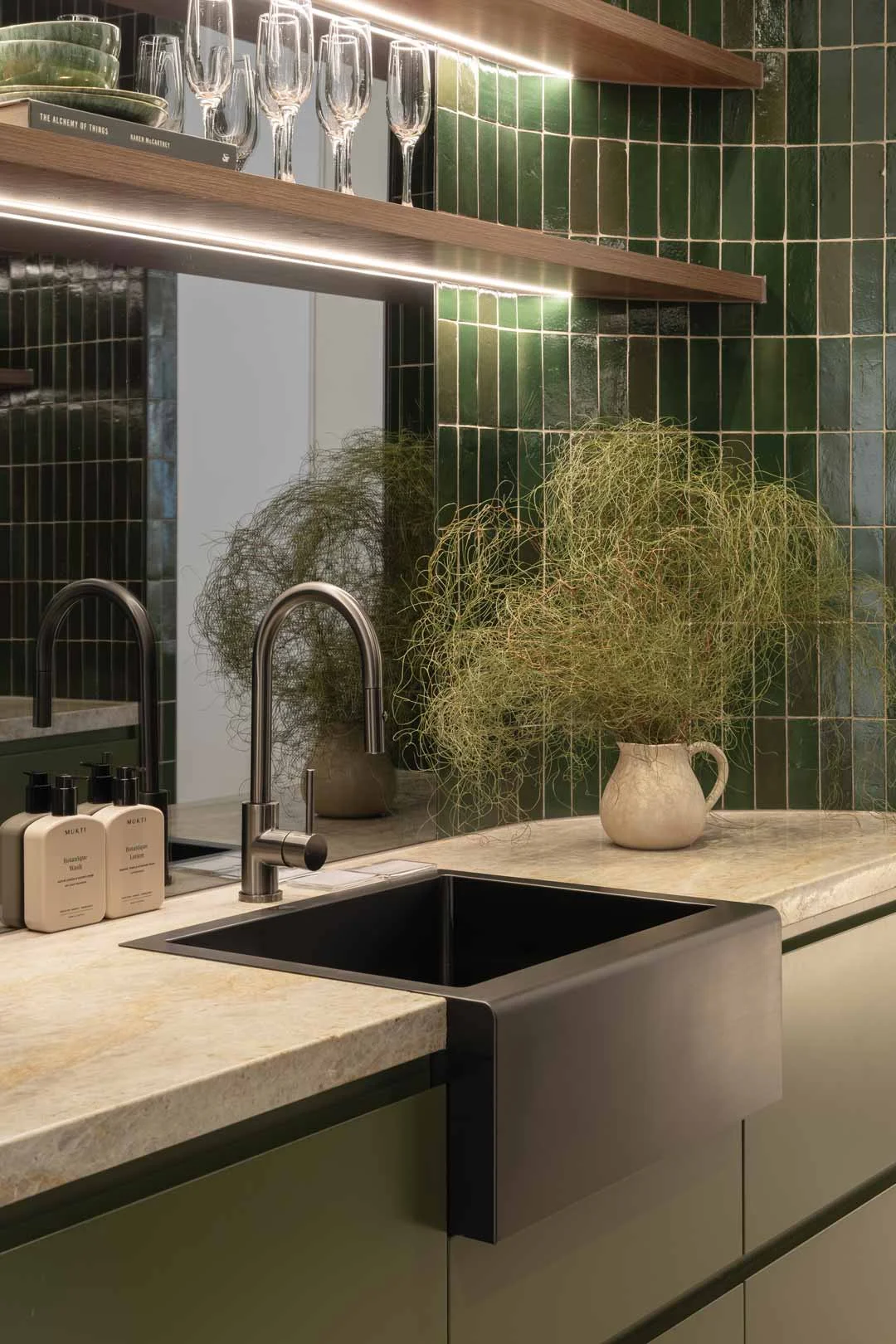
This is such an important question because right now, there is a murky reality hiding behind this seemingly wholesome trend: the dirty truth. As the market becomes saturated with clean beauty products, a backlash is brewing — one that questions the very foundation of what ‘clean’ means in the beauty industry.
Sephora has been hit by a class-action lawsuit over its ‘Clean at Sephora’ label, brands like Gwyneth Paltrow’s Goop have faced intense scrutiny for their often-pseudoscientific claims, and the EU's recent ban on “free from” claims for cosmetics (e.g., “free from parabens”) highlights the growing awareness of the deception in the industry.
A growing chorus of voices is challenging the clean beauty narrative. Unfortunately, it has become the wild west. Without regulation, brands are free to define ‘clean’ however they choose, leading to confusion and, often, exploitation of consumers. Some brands focus on being “free from” certain ingredients, while others emphasise natural or organic components. This inconsistency makes it challenging for consumers to make informed decisions.
The backlash also stems from a growing demand for scientific evidence behind clean beauty claims. Many brands rely on anecdotal evidence or emotional appeals rather than robust scientific research to support their formulations. This has led to calls for greater transparency regarding ingredient safety and efficacy.
On social media, the hashtag #CleanBeautyExposed is gaining traction, with beauty enthusiasts and industry insiders alike calling out brands for misleading claims, greenwashing tactics, and a lack of scientific backing. Over on TikTok and Instagram, Michelle Wong (@labmuffinbeautyscience) breaks down the science behind skincare, often contradicting clean beauty claims with peer-reviewed research.
I personally (and professionally) have spent years advocating for transparency in the industry, most recently through my book, Truth in Beauty, which aims to lift the lid on the dark secrets of the beauty industry, helping readers navigate the clean beauty movement. As consumers, we can demand transparency and integrity from the brands we support. My book is a roadmap for understanding the ingredients in our products, recognising the marketing tactics that can mislead us, and, ultimately, trying to cultivate a beauty culture that prioritises health, sustainability, and authenticity.
Q. What are some of the biggest misconceptions about clean beauty?
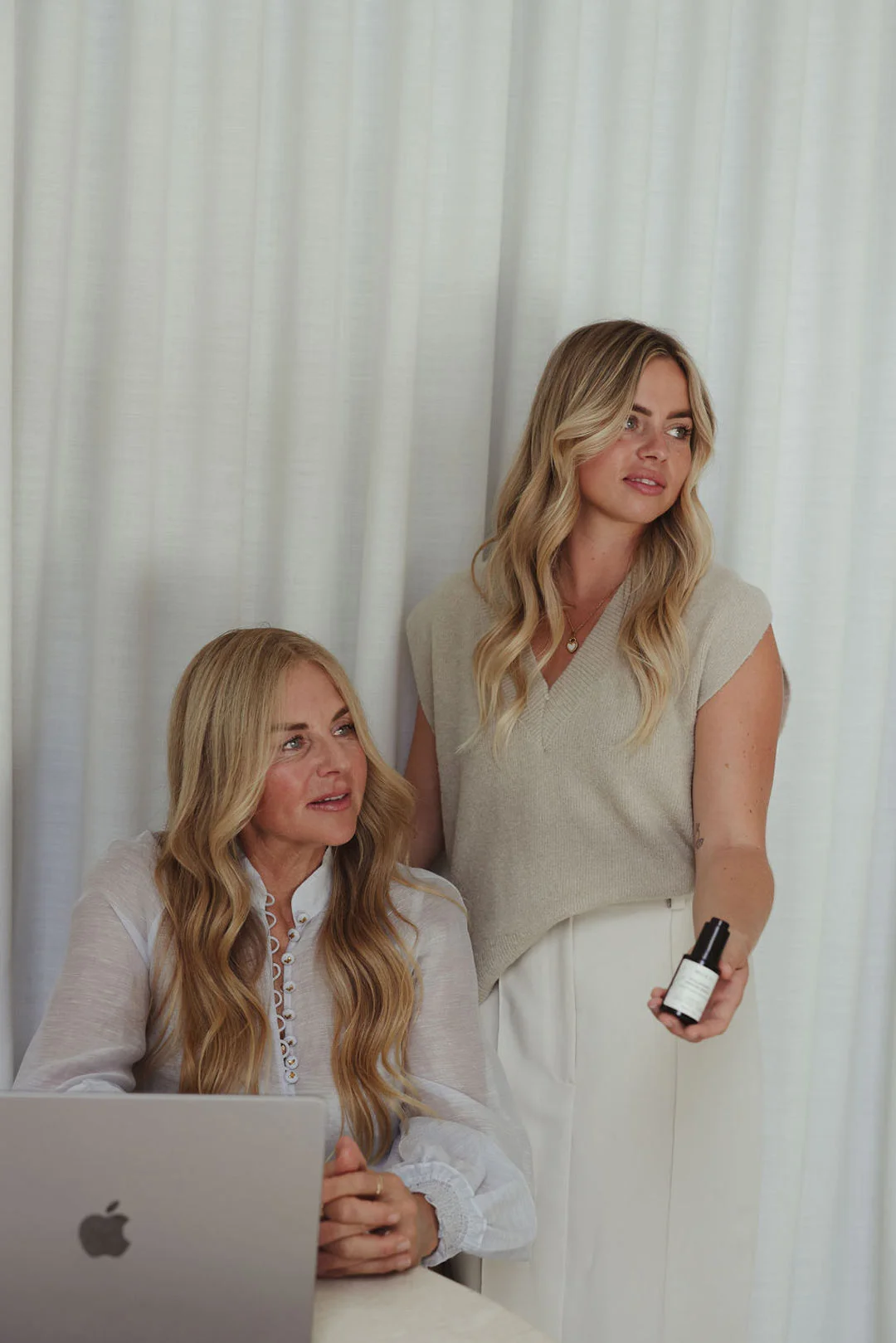
The first is when a brand claims it’s ‘clean’! There are no regulations around this word, so you really can’t take that at face value. My advice for those wanting to make informed choices is to learn to read product labels critically and recognise misleading marketing claims. An informed consumer is a powerful force for change in the beauty industry.
Another misconception is that ‘clean’ is synonymous with ‘safe’, which is not always the case. Water could be considered a ‘clean’ ingredient, but it becomes toxic when you drink too much. That’s where ‘the dose that makes the poison’ comes into play. Understand that the order of ingredients matters, and even natural substances can be irritants or allergens for some people. Don't be swayed by buzzwords like 'chemical-free' — everything, like water, is a chemical.
And finally, don’t be misinformed by fear-mongering tactics. Many brands demonise certain ingredients without scientific backing. Customers need to educate themselves on the actual research behind controversial ingredients.
We carefully balance sustainability with efficacy by prioritising environmentally responsible choices without compromising product quality or aesthetics. Achieving 98% recyclable packaging has been a significant milestone, though it hasn’t been without challenges. It would be easier to choose visually appealing, functional packaging without considering the environmental impact, but that goes against our core values. Instead, we’ve worked closely with suppliers, conducted thorough research, and evaluated materials to find solutions that protect our products, meet customer expectations, and align with our sustainability goals.
Educating customers and the industry has been a challenge, particularly around the assumption that refillable packaging is the most sustainable option. While it’s an improvement over disposable packaging, it still generates significant waste and poses contamination risks, making sterilisation and reuse across products neither feasible nor sustainable.
Instead, our fully recyclable bottles and jars can be placed in curbside recycling, and we’ve phased out single-use plastic sample pots and spatulas. Many "sustainable" brands still rely on single-use plastics for samples, further highlighting the hidden environmental impact of refillable solutions.
Q. What are two simple swaps people can make in the bathroom and kitchen to improve their health and reduce toxins?
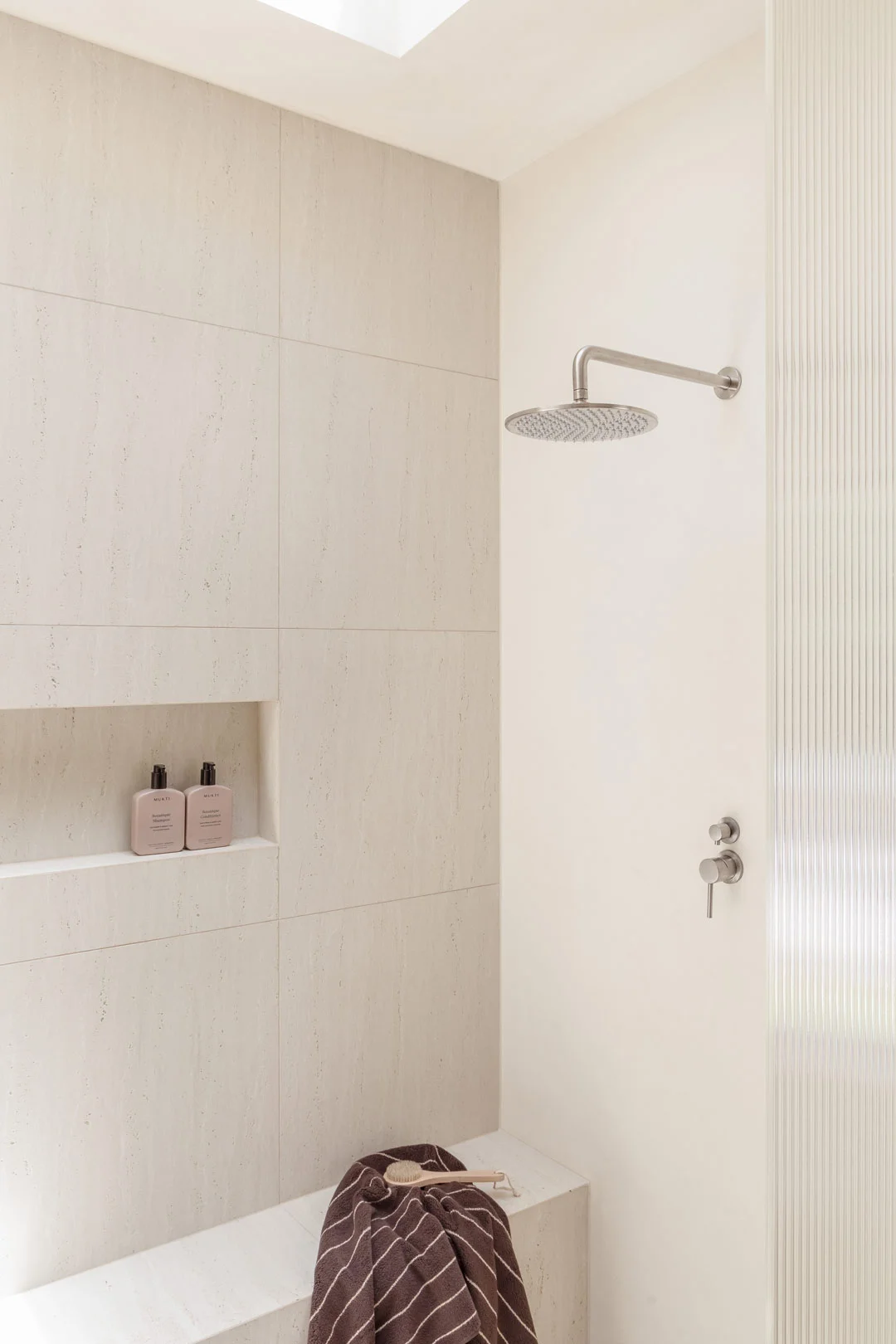
The first swap is perfume and fragranced air sprays! The terms ‘fragrance’ or ‘parfum’ on cosmetic labels can be misleading. These umbrella terms represent a complex mixture of harmful chemicals. Fragrances are inherently unsafe — they can contain between 10 and 300 potentially neurotoxic and carcinogenic chemicals from a pool of thousands.
Furthermore, the beauty industry's lack of regulation allows companies to hide a range of synthetic ingredients under these terms without full disclosure. Look for fragrance-free products (or those with minimal essential oil synergies, which offer therapeutic benefits without the harmful effects of synthetic fragrances). If you must still have fragrances, reduce exposure by applying perfumes in well-ventilated areas or outdoors and avoiding direct skin contact.
Secondly, avoid all products that contain PFAS (perfluorinated and polyfluoroalkyl substances) and phthalates, which are known as forever chemicals and are linked to endocrine disruption. PFAS are commonly used to make products resistant to water, such as lipsticks, eyeshadows, moisturisers, and foundations. They can enhance staying power, conditioning, smoothness, shine, and consistency. Some PFAS may also be present in cosmetics unintentionally due to raw material impurities or the breakdown of intentionally added PFAS ingredients that form other types of PFAS.
Both PFAS and phthalates are highly prevalent in biomonitoring studies, with PFAS detected in an estimated 98% of human blood samples. Research has linked PFAS exposure to adverse effects on fetal development in both human and animal studies.
Q. Do you have any favourite products, tools, or routines you use in your home to live a cleaner, healthier lifestyle?
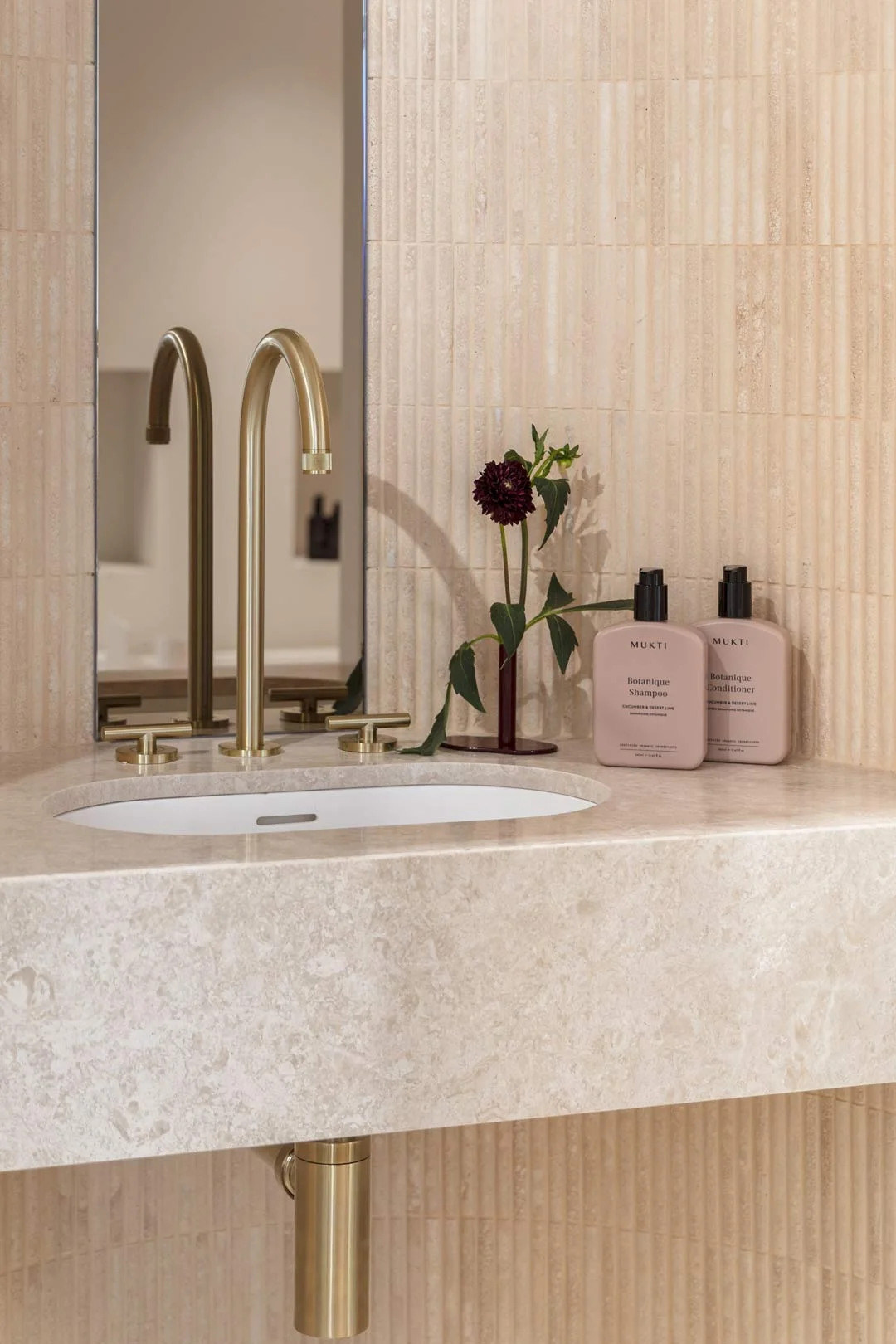
Creating a structured morning routine helps me foster a positive mindset for the rest of the day. I begin my day at sunrise so I can practice meditation and do some form of exercise. I train a combination of resistance, weights, and cardio three times a week. On alternate days, I walk barefoot on the beach with no sunglasses or phone for an hour to ensure I get a dose of sunlight. On the weekends, I take a pilates chain movement class. This structured morning routine helps me to set intentions for the rest of the day.
Nature helps us feel connected to ourselves and the world around us. I make sure I spend time outdoors daily, even if it’s just standing barefoot on the grass to reconnect. This simple practice enhances my mental wellbeing, keeps me grounded, and helps balance the demands of a busy professional life.
My skincare routine consists mainly of my own products. I occasionally try other brands I'm curious about and that meet my clean beauty benchmark. These are the products I love and use daily:
- Mukti Organics Hydrating Cleansing Lotion
- Mukti Organics Rose Blossom Hydrating Mist
- Mukti Organics Vital C
- Mukti Organics Antioxidant Facial Oil
- Mukti Organics Daily Moisturiser with Sunscreen
- Kjaer Weis (“key-yer-wise”) Foundation
- Ere Perez Lipstick & Lip Pencil
- Eye of Horus Mascara
- Westman Atelier Highlight Bronzer
Q. How can small changes in daily home habits positively impact personal wellbeing and the environment?
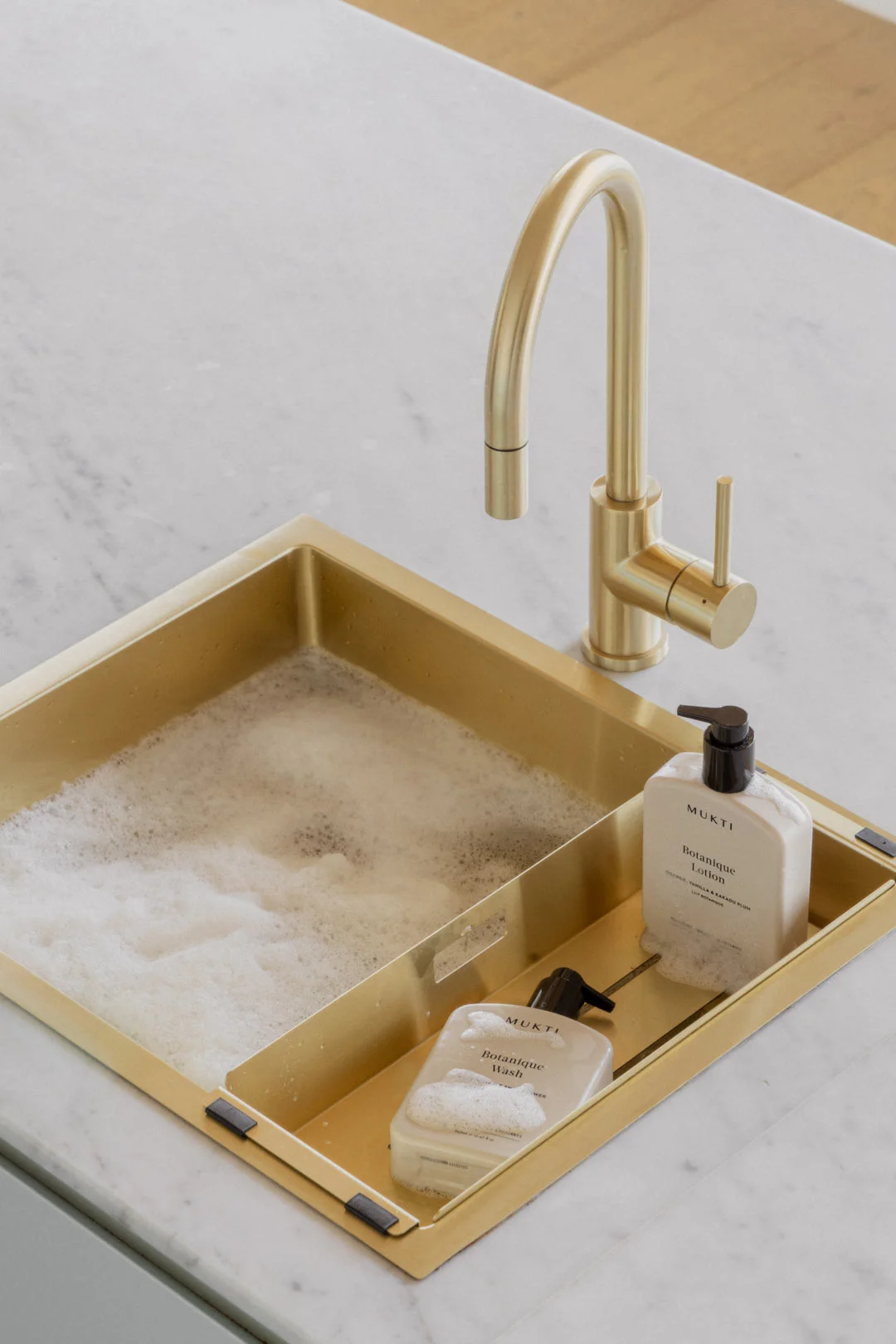
Reduce Single-Use Plastics: Swap disposable items like plastic bags and water bottles for reusable options. This reduces waste and creates a cleaner living environment, fostering a sense of mindfulness.
Practice Mindful Consumption: Buy only what you need, reuse, and recycle where possible. This reduces waste and encourages a more intentional, fulfilling lifestyle.
Choose Natural and Sustainable Products: Opt for eco-friendly cleaning supplies and skincare products free from harsh chemicals, which benefit both personal health and the environment.
Conserve Energy and Water: Turning off lights, using energy-efficient appliances, and fixing leaks not only lowers utility bills but also reduces resource consumption, promoting sustainability and a sense of accomplishment.
Spend Time in Nature: Gardening, walking, or simply enjoying fresh air can improve mental health, boost mood, and deepen your connection to the planet.
These simple adjustments cultivate healthier habits, reduce stress, and contribute to a sustainable future.
For more clean living inspiration, read our blogs:
The Ultimate Guide to Water-Efficient Fixtures for Your Home

